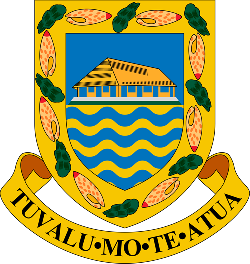Areas of Expertise
Project Status
Project Type
Results
Institutional strengthening of Tuvalu's NDA and Preparation of Country Programme - The Tuvalu Readiness-1 project will highly support mechanisms on strengthening the NDA’s capacity and building on that capacity to deliver concise and effective measures in addressing climate finance, enhancing engagement with GCF, building on national stakeholders and private sectors, women and vulnerable groups communication whilst engaging them in decision making and voicing their opinions to build a reflective Country Programme and strategic framework.
ObjectivesThe project will supoort
(i) strengthening the institutional capacity of the NDA to fulfil its role and obligations to the Green Climate Fund (‘the Fund’) and
(ii) formulating a country programme to further enhance Tuvalu’s strategic engagement with the Fund.
For the first component, the NDA will work closely with the delivery partner and national stakeholders to put in place new or improved mechanisms, procedures and processes for accessing, managing and monitoring climate finance. For the second component, the NDA will engage government, civil society organisations, private sector and island communities to develop a strategic framework of climate change investments that are appropriate, transformative, and scalable, and are aligned with Tuvalu’s national sustainable development and climate change priorities
(i) strengthening the institutional capacity of the NDA to fulfil its role and obligations to the Green Climate Fund (‘the Fund’) and
(ii) formulating a country programme to further enhance Tuvalu’s strategic engagement with the Fund.
For the first component, the NDA will work closely with the delivery partner and national stakeholders to put in place new or improved mechanisms, procedures and processes for accessing, managing and monitoring climate finance. For the second component, the NDA will engage government, civil society organisations, private sector and island communities to develop a strategic framework of climate change investments that are appropriate, transformative, and scalable, and are aligned with Tuvalu’s national sustainable development and climate change priorities
Status: Current
Project Coordinator: Mr Lono LeneuotiSIDS rely on small coastal aquifers for their water supply needs. These coastal aquifers are fragile thin freshwater lenses that float on the underlying denser seawater and are reliant on rainfall for recharge. These coastal aquifers are at higher risk of impact to water quality deterioration from threats including saltwater contamination from sea level rise, over abstraction, wave overtopping, loss of aquifer area through coastal erosion, and other impacts on water quality from inappropriate land-use activities. Climate change exacerbates these long-running threats to coastal aquifers through increased climate variability and climate extremes. The fragility of coastal fresh groundwater systems necessitates careful management and protection to ensure their long-term integrity and their role in climate change adaptation strategies and improved water security. The project aims at improving the understanding, use, management and protection of coastal aquifers towards enhanced water security, including in the context of a changing climate. More specifically it aims at 1) identifying the extent, threats and the development potential of groundwater resources, 2) increasing awareness of groundwater as a water security supply source, 3) providing options for improved access to groundwater and 4) and improving aquifer protection and management, within Pacific Small Island Developing States.
Status: Current
The overall goal of the Programme is to increase the resilience of populations in the CookIslands, Niue, Palau, the Republic of the Marshall Islands (RMI) and Tuvalu to climate changeand climate-related hazards, through the delivery of timely, accurate and actionable climate andocean information and early warnings to facilitate climate-resilient policy, planning,preparedness and response actions.The Programme will establish integrated climate and ocean information services and multihazardearly warning systems (MHEWS) in five Pacific Small Island Developing States (SIDS):Cook Islands, Niue, Palau, RMI and Tuvalu.
Status: Current
topography, size, geographical remoteness and access to resources. Despite these challenges, it has become a leading voice for enhanced climate mitigation regionally and globally. Tuvalu is now developing a national adaptation planning process (and NAP) that will form a sustainable platform for future adaptation investments.
Status: Current
